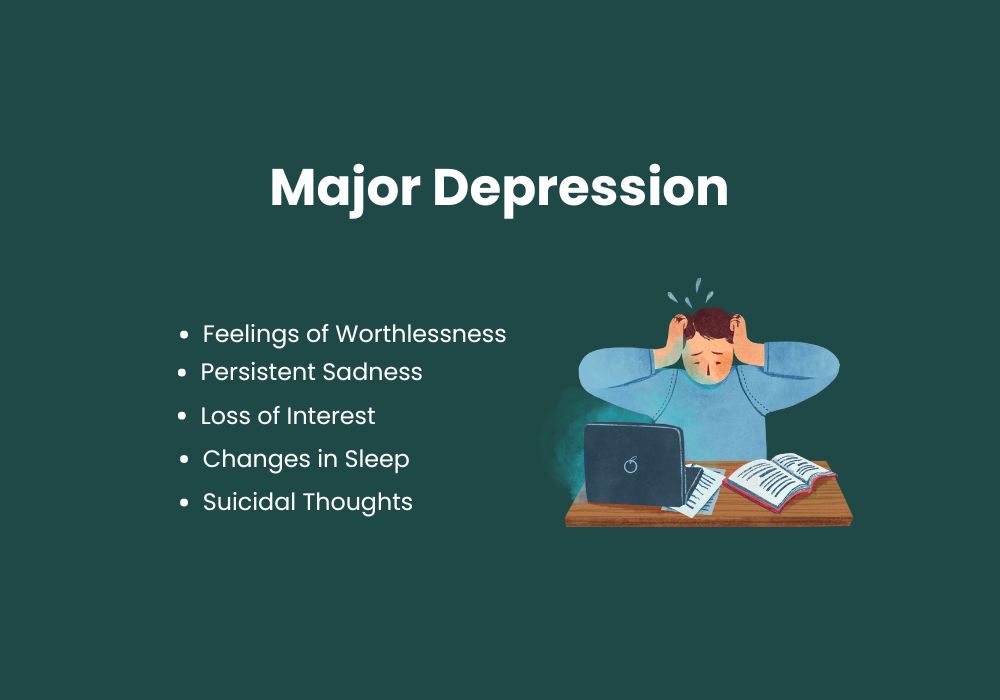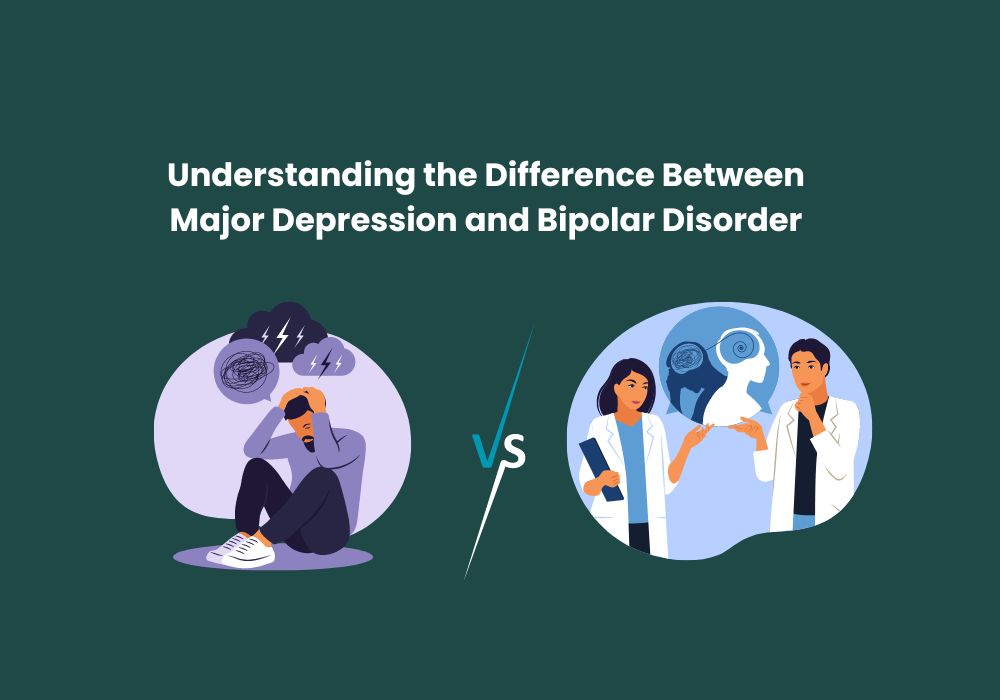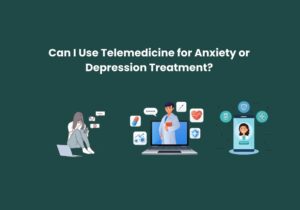At Peniel Psychiatry, we know how important it is to diagnose and treat mental health conditions correctly. Major depression and bipolar disorder are both common, but they are different conditions. Each needs a specific approach for proper treatment.
Here, we explain the main differences between these two disorders. This can help you understand their unique features and how they affect daily life.
Before we get into the details of this topic, make sure to check out our previous post on Understanding Symptoms of Severe Bipolar Depression. Bipolar disorder is a complex mental health condition.
Difference Between Major Depression and Bipolar Disorder

Definition: Major depression, also known as major depressive disorder (MDD), is a mood disorder characterized by persistent feelings of sadness, hopelessness, and a lack of interest or pleasure in nearly all activities.
Key Symptoms:
- Persistent Sadness: A pervasive feeling of sadness or emptiness.
- Loss of Interest: Diminished interest or pleasure in most activities.
- Fatigue: Chronic tiredness and lack of energy.
- Changes in Sleep: Insomnia or excessive sleeping.
- Appetite and Weight Changes: Significant weight loss or gain, or changes in appetite.
- Feelings of Worthlessness: Excessive or inappropriate guilt and feelings of worthlessness.
- Difficulty Concentrating: Trouble making decisions or focusing.
- Suicidal Thoughts: Recurrent thoughts of death or suicide.
Course: Major depression can occur as a single episode or as recurrent episodes throughout a person’s life. The depressive episodes last at least two weeks but can persist for months if untreated.
Treatment:
- Medication: Antidepressants are commonly prescribed to balance brain chemicals.
- Psychotherapy: Cognitive-behavioral therapy (CBT) and other therapies to address negative thought patterns.
- Lifestyle Modifications: Regular exercise, a healthy diet, and good sleep hygiene.
- Support Groups: Sharing experiences and gaining support from others.
Bipolar Disorder

Definition: Bipolar disorder is a mood disorder characterized by extreme mood swings, including emotional highs (mania or hypomania) and lows (depression).
Key Symptoms:
- Elevated Mood: Unusually high energy levels and an expansive or irritable mood.
- Increased Activity: Restlessness and excessive involvement in activities.
- Racing Thoughts: Rapid thought processes and talking more than usual.
- Risky Behaviors: Impulsive behaviors such as spending sprees or reckless driving.
- Decreased Need for Sleep: Feeling rested after only a few hours.
Depressive Phases:
Similar symptoms to major depression include persistent sadness, loss of interest, fatigue, sleep disturbances, changes in appetite, feelings of worthlessness, difficulty concentrating, and suicidal thoughts.
Course: Bipolar disorder typically involves alternating periods of mania/hypomania and depression. These mood swings can be unpredictable and can occur several times a year or less frequently.
Treatment:
- Medication: Mood stabilizers, antipsychotics, and sometimes antidepressants.
- Psychotherapy: Cognitive-behavioral therapy (CBT) and psychoeducation to manage symptoms and prevent relapse.
- Lifestyle Modifications: Routine, healthy diet, exercise, and adequate sleep.
- Support Groups: Connecting with others who have similar experiences.
Key Differences of Major Depression and Bipolar Disorder
- Mood Patterns: Major depression involves a consistently low mood, while bipolar disorder includes both depressive and manic/hypomanic episodes.
- Energy Levels: Major depression is marked by low energy, whereas bipolar disorder alternates between low energy (depression) and high energy (mania/hypomania).
- Treatment Approach: Both conditions require different medications and therapeutic approaches tailored to their specific symptoms.
Conclusion
Understanding the differences between major depression and bipolar disorder is crucial for effective diagnosis and treatment. At Peniel Psychiatry, our experienced team is dedicated to providing personalized care to help individuals manage their symptoms and improve their quality of life. If you or a loved one is experiencing symptoms of either condition, don’t hesitate to get in touch with us to schedule a consultation.




